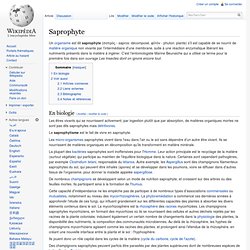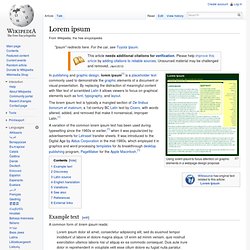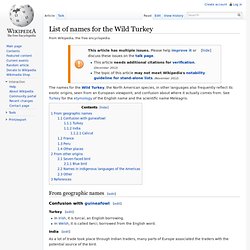

Utrecht sodomy trials. Timely punishment depicted as a warning to godless and damnable sinners.

Engraving depicting the Dutch massacre of sodomites. Published in Amsterdam, 1731. The Utrecht sodomy trials (Dutch: Utrechtse sodomieprocessen) were a large-scale persecution of homosexuals that took place in the Dutch Republic, starting in the city of Utrecht in 1730. Over the following year, the persecution of "sodomites" spread to the rest of the nation, leading to some 250[1][2] to 300[3] trials, often ending in a death sentence. History[edit] As of 1730, the Dutch Republic had just experienced an epizootic disease in its cattle population, while its dikes were threatened by shipworm.
Bildungsroman. In literary criticism, a bildungsroman (German pronunciation: [ˈbɪldʊŋs.ʁoˌmaːn]; German: "novel of formation/education/culture"), [a] novel of formation, novel of education,[2] or coming-of-age story (though it may also be known as a subset of the coming-of-age story) is a literary genre that focuses on the psychological and moral growth of the protagonist from youth to adulthood (coming of age), and wherein character change therefore is extremely important.

History[edit] The term was coined in 1819 by philologist Karl Morgenstern in his university lectures, and later famously reprised by Wilhelm Dilthey, who legitimized it in 1870 and popularized it in 1905. The genre is further characterized by a number of formal, topical, and thematic features.[7] The term coming-of-age novel is sometimes used interchangeably with bildungsroman, but its use is usually wider and less technical. The genre translates fairly directly into cinematic form, the coming-of-age film. Utrechtenaar. Bildungsroman. Sitzpinkler. Intelligentsia. For the coffee shop company, see Intelligentsia Coffee & Tea.

The intelligentsia, from Latin: intellegentia (Polish: inteligencja, Russian: интеллигенция,[1] pronounced [ɪntʲɪlʲɪˈɡʲentsɨjə]) is a social class of people engaged in complex mental labour aimed at disseminating culture. This therefore might include everyone from artists to school teachers. Intelligentsia is the subject of active polemics concerning its own role in the development of modern society not always positive historically, often contributing to higher degree of progress, but also to its backward movement.[2] In a social sense, the stratum of intelligentsia arose first in Poland – more specifically – in the Russian controlled Poland in the age of Partitions.
History of the notion[edit] The term was also popularised by a Russian writer, Pyotr Boborykin, in the 1860s, who proclaimed himself the "godfather" of the notion. Subreddit for University of Reddit class 'Introduction to Japanese Language and Culture' Introduction to Japanese Language and Culture, Summer '13. Garden. Florilège : définition et synonymes du mot florilège dans le dictionnaire. Saprophyte. Un article de Wikipédia, l'encyclopédie libre.

Un organisme est dit saprophyte (σαπρός - sapros: décomposé, φῠτόν - phuton: plante) s'il est capable de se nourrir de matière organique non vivante par l'intermédiaire d'une membrane, suite à une réaction enzymatique libérant les nutriments présents dans la matière à ingérer. C'est l'entomologiste Marine Beunaiche qui a utilisé ce terme pour la première fois dans son ouvrage Les Insectes dont on ignore encore tout. En biologie[modifier | modifier le code] Les êtres vivants qui se nourrissent activement, par ingestion plutôt que par absorption, de matières organiques mortes ne sont pas dits saprophytes mais détritivores. Le saprophytisme est le fait de vivre en saprophyte. Les micro-organismes saprophytes vivent dans l'eau dans l'air ou le sol sans dépendre d'un autre être vivant.
La plupart des bactéries saprophytes sont inoffensives pour l'Homme. Why You Must Learn Kanji - GaijinPot. Illustration from Kanji Academy at Japanese LinguaLift For a lot of people, kanji is about on par with natto.

A huge sticky mess, difficult to consume, and not nearly as tasty as it is troublesome. Plus it makes your breath smell like the wrong end of a dog, which is rarely a good thing. I mean natto, that is. Kanji does nothing for your breath. Lorem ipsum. Using lorem ipsum to focus attention on graphic elements in a webpage design proposal The lorem ipsum text is typically a mangled section of De finibus bonorum et malorum, a 1st-century BC Latin text by Cicero, with words altered, added, and removed that make it nonsensical, improper Latin.[1]

About. Genkiwada Thank you for teaching!!

Thanks to your help, I could enjoy my lesson. you gave me some interesting articles. List of names for the Wild Turkey. From geographic names[edit] Confusion with guineafowl[edit] Turkey[edit] In Irish, it is turcaí, an English borrowing.In Welsh, it is called twrci, borrowed from the English word.

How Knowing a Foreign Language Can Improve Your Decisions. The study of how people process foreign languages has traditionally focused on the topics we wrestled with in high school French or Spanish classes -- botched grammar, misunderstood vocabulary, and mangled phonemes.

But in recent years psychologists have gone to the laboratory with a phenomenon that historically was only discussed in memoirs by bilingual writers like Vladimir Nabokov and Eva Hoffman: a foreign language feels less emotional than the mother tongue. Consider the case of taboo words. For many multilinguals, swearing in a foreign language doesn't evoke the same anxiety (or bring the same emotional release) as using a native language. Decreased emotionality in a foreign language spans the gamut of emotions, from saying “I love you,” to hearing childhood reprimands, to uttering morally grave lies, or being influenced by persuasive messages in advertising.
Researchers have sought to understand the range and limits of these emotional language effects. Zmvc9.jpg (470×168) Printable core 2000 vocabulary list. SaviiMember From: NetherlandsRegistered: 2012-08-13Posts: 107 Currently I'm studying the original Core2k using Anki.

Japanese Core 1000: Step 1 (100 words) available as *.anki and *.txt! : LearnJapanese. How Being Casual is not Always OK - Freedom Requires Wings. This is not a happy post. It features gratuitous use of a derogatory word that many find offensive. Anyone reading should consider themselves sufficiently warned. So a while back, Mees posted an article about the use of the word “faggot” on Internet sites like 4Chan and Reddit, and after reading it I had to have a good long think about my own views about it.
What follows is an extremely long rant which some people may disagree with. You’ll see it on YouTube, you’ll see it on Reddit, you’ll see it on 4Chan, you’ll see it on Tumblr, you’ll see it on Twitter, and you will see it on some people’s personal blogs. [BY REQUEST] I AmA polyglot (multilingual person) from Ireland. I only spoke English when I was 21, but now I speak 10 languages and can sign ASL. I've given a TEDx talk to inspire adult language learners. AMA : IAmA. When adverbs aren't adverbs, and swearing isn't language.
Phosphene. Not to be confused with phosphine (PH3) or phosgene (COCl2). Artist's depiction of mechanical phosphene A phosphene is a phenomenon characterized by the experience of seeing light without light actually entering the eye. The word phosphene comes from the Greek words phos (light) and phainein (to show).[1] Phosphenes are flashes of light, often associated with optic neuritis, induced by movement or sound.[2][3] Phosphenes can be directly induced by mechanical, electrical, or magnetic stimulation of the retina or visual cortex as well as by random firing of cells in the visual system. How to Learn Japanese Fast. So, I’ve been living in Japan for close to 5 months now and unfortunately haven’t picked up nearly as much of the language as I’d hoped. I’ve got the greetings down and can order simple food but anything past that (let alone a conversation) is out of the question.
I thought that since I was living with a Japanese girl and working at a Japanese company the language would come naturally. That hasn’t been the case, so I’ve decided that some studying/learning might be a good idea. Patricia Ryan: Don't insist on English!